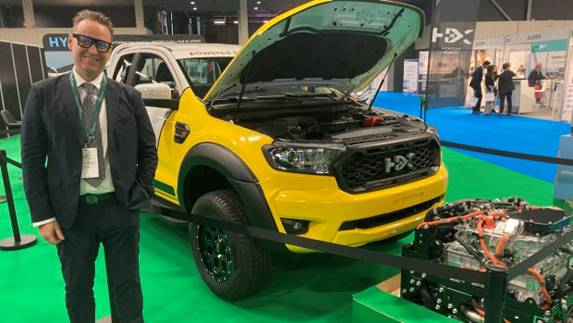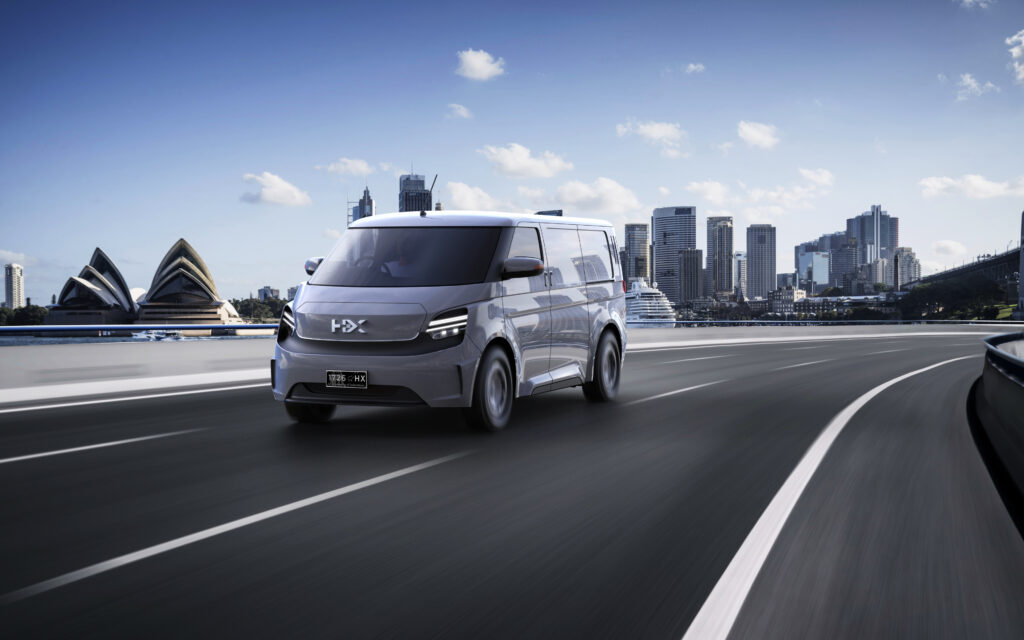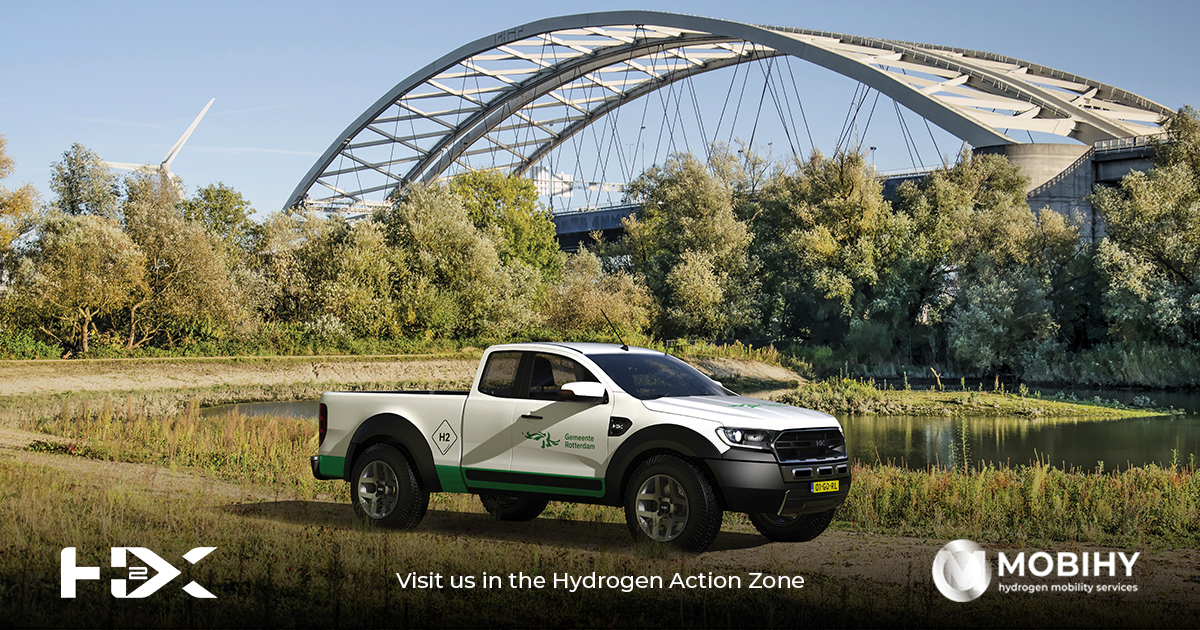
Hans van Leeuwen
Europe correspondent
May 19, 2023 – 7.21am
Rotterdam | It has taken an Australian-founded company to bring that definitive Aussie touch to the embryonic market for hydrogen vehicles. At the hydrogen industry’s global jamboree in Rotterdam last week, H2X showcased a hydrogen-powered ute.
H2X’s stall at the back of the Dutch city’s cavernous exhibition centre attracted an almost constant crowd of the keen and the curious, gazing raptly at the converted Ford Ranger with a hydrogen motor under the bonnet.

“We made it a 4WD – that got us a lot of response, more than we expected,” H2X co-founder Chris Reitz told AFR Weekend as he stood by and spruiked his Australian-born start-up.
The Warrego has a top speed of 130 kilometres an hour and a range of about 500 kilometres from its fuel tank, made of woven carbon fibre and containing 4.8 kilograms of hydrogen.
But if you’re wondering where you might refill the tank, therein lies the catch. In the worldwide absence of any network of hydrogen fuelling stations, H2X’s pitch is to owners of professional fleets – companies with a base at which refuelling can take place.
“The backbone of our business is professional drivers – so we work with fleets and back-to-base set-ups,” Mr Reitz said.
He sees that as a positive, as it allows H2X to start building scale before countries get a full hydrogen-vehicle refuelling infrastructure in place.
“We solve the whole chicken-and-egg problem,” he said.
A big company in the vehicle manufacturing chain, known as an OEM (original equipment manufacturer), would need to launch a new product at national or even continental scale.
“They won’t reach the numbers to break even at that point. To do that they need an infrastructure of filling stations covering that continent,” Mr Reitz said. “We can deliver, say, an 800-vehicle order, whereas OEMs need to think big.”
Mr Reitz said bus and truck fleet owners would be attracted to hydrogen because they have to run the vehicles up to 24 hours a day, so they would prefer the faster refuelling time. It takes so much longer to recharge a battery that you might need twice as many vehicles, to cover for those that are on charge.
“We believe battery has its place, we never criticise it. But for certain applications, hydrogen has the advantage that you can refuel in the time that you are used to,” he said.
Calling card
For both its utes and trucks, H2X will initially drop its hydrogen power trains into existing models, like the Ford Ranger on display in Rotterdam.
It is unlikely, though, that Australians or Europeans will see thousands of Warregos on the road – Mr Reitz described it as more of a calling card.
“There is high demand for utes, but they are expensive for us because we need to buy them and retrofit them. So the margin is not there,” he said.
“We will do a limited number. It’s a demonstrator product. We’re using it as a test for the production of a 3.5-tonne van.”
The Darling van is the subject that gets Mr Reitz most animated. The company has been looking at ways to manufacture it less carbon-intensively. This involves making a chassis almost origami-style, rather than pressing it together in energy-guzzling stamping facilities.
The van prototypes are being made in Germany and the Netherlands, with production of up to 70,000 vehicles a year to start at a first factory potentially as soon as 2026.
 A computer image of H2X’s planned hydrogen-fuelled van.
A computer image of H2X’s planned hydrogen-fuelled van.
H2X also has a plant in Sweden, where it is installing hydrogen engines into the chassis of 18-tonne and 26-tonne trucks for clients in that region. In Gothenburg, they have a contract to supply garbage trucks, and the council has its own hydrogen filling station.
The company’s vision is to produce its vehicles at small plants in each country where it gets enough demand, rather than shipping vehicles around the world. The target markets are north-western Europe, South-East Asia and Australia.
“We will produce in situ – that’s more sustainable. Big manufacturers need to produce in a very different way because they are on a different scale to us,” Mr Reitz said.
He and Australian co-founder and CEO Brendan Norman set up H2X in 2020 after having worked together with Chinese group Grove Automotive, until the COVID-19 pandemic got in the way of that partnership.
The original plan was to produce cars for the retail and industrial markets in the NSW town of Port Kembla, but the focus has shifted to a more step-by-step strategy involving professional fleets in Europe.
Standing right next to the ute, though, it is hard not to feel that the promise of everyday drivers being able to choose hydrogen might be within touching distance.
Mr Reitz cautiously agreed: “I believe it will penetrate the market more and more. It’s a little bit like diesel versus gasoline: there will be complementary technologies. Diversity is good for any market.”
